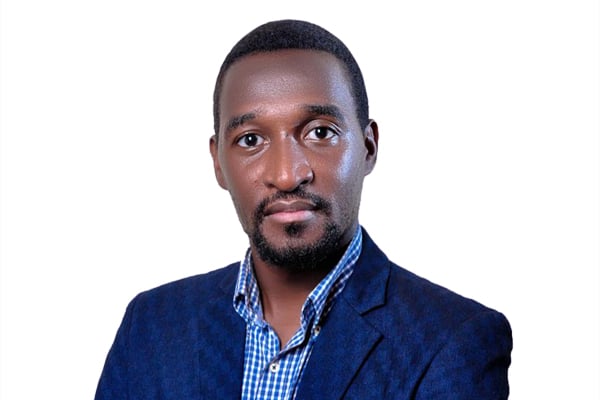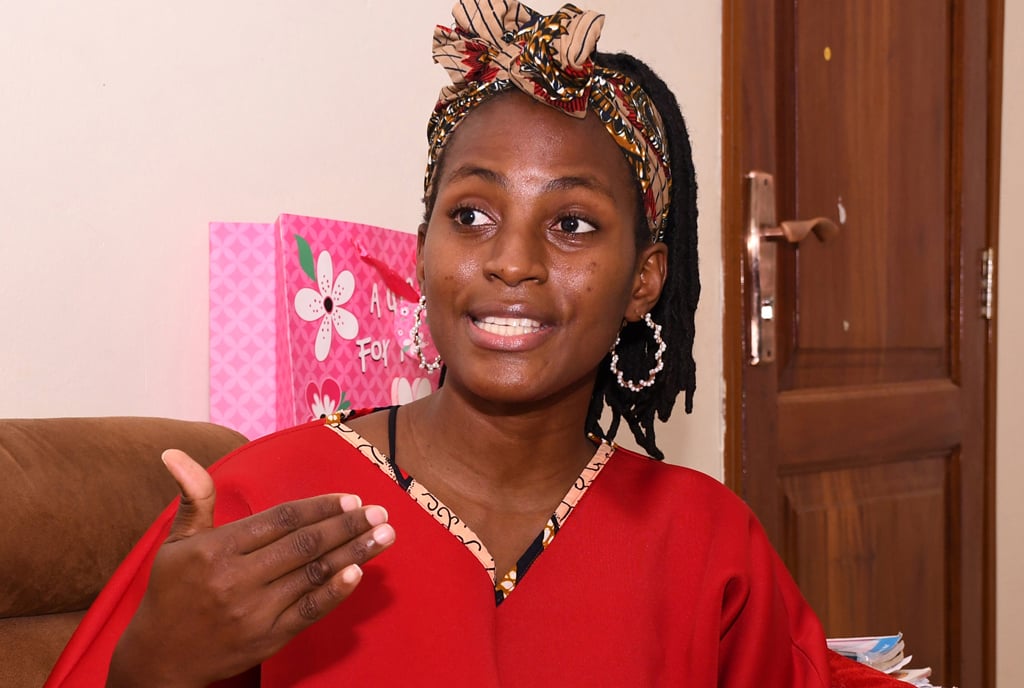Prime
Beating Covid: I coughed a lot, lost breathe, but the concoction helped

Mr Paul Rukundo Rwabihurwa, a businessman, who deals in exports of fresh fruits and vegetables. PHOTO | FELIX AINEBYOONA
What you need to know:
- In this series dubbed ‘Beating Covid’, we trace victims who caught the virus and overcame it. Felix Ainebyoona shares the story of Mr Paul Rukundo Rwabihurwa, a businessman, who deals in exports of fresh fruits and vegetables.
“I am Paul Rukundo Rwabihurwa, the National Resistance Movement youth chairperson for Rukungiri District. I am a businessman dealing in exports of fresh fruits and vegetables as well as an economist at Team University in Kampala.
It was a Monday morning, May 31, that I woke up early at 5am to prepare to go to work as usual. I took a shower but afterwards, I started feeling weak. I rested for about 30 minutes but the condition persisted. I decided to proceed to work with hopes that I would eventually feel better.
I was able to drive to work but I did not feel any better. Instead, I got worse and started experiencing new symptoms such as high temperature, fever, headache and chest pains.
I thought that I had malaria and so at about 2pm, I got out of the office and went to a healthy facility (Cambridge Health Medical Centre at Forest Mall Lugogo) and tested for malaria. To my surprise, the results were negative, that is when I started suspecting that I probably had contracted Covid-19.
The doctor advised me to test for Covid-19 after doing a complete blood test and finding out that my platelets were low. I then first left the facility for about an hour, trying to prepare my mind on how to communicate, in case I indeed had Covid-19. I then went back and did a rapid test. The results were positive.
Initially, it was not a surprise because I had had a feeling I might have it, but of course it was very scary. While I looked confident, deep down, I was very scared. This is a virus that has no cure yet, which means it is basically a fight between your immunity and the virus. I was comforted by the fact that I was young and fit because I exercise a lot, and the virus world over has killed more elderly than the young. But also, there is this new variant that had started killing even the young, so I was also confused.
Scary symptoms
The first symptom I got was body weakness, then joint pains, a high temperature, fever, then after about three hours, I developed a cough that was accompanied by chest pains. My body became so hot, I was sweating all the time and this scared me a lot.
I encountered two difficult moments. One was on the day I tested. As I drove back home, I was on tension, sweating and at the same time freezing. The fever was also high. I feared I was going to die. The distance from home to work is about 25kms but it felt like 1,000 kms. All I wanted was to stop and rest, but I eventually got home. On the second day, I became weaker and could not even speak on the phone. The cough was too much. I also didn’t have an appetite and because I stay alone, I was worried that hunger would kill me before Covid-19 would. I was feeding on fruits only.
At the hospital, I had been given a number of medicines that included Azithromycin, Vitamin C, Zinc, paracetamol and a syrup. I knew those drugs would not cure the illness but they would help boost my immunity to fight the disease, so I had to also go natural and look for fruits and vegetables to supplement them. I made a concoction of ginger, garlic, lemon, honey, and red pepper in hot water and I would take at least six cups a day. This helped to lessen the chest pains, it was the first symptom that disappeared. It was the scariest symptom I had, so when it left, I had hope that even the others would eventually go.
Telling the family
Immediately after testing positive, I informed my family on our WhatsApp group chat. One of my brothers who gets really worried when he gets bad news kept calling me all the time. At some point when I was too weak to speak, I would wake up early and write something on the family group letting them know I would be fine, in order to avoid those calls. .
I also called a few friends I had been with the weekend before. They also tested positive after I alerted them. I kept in touch with those who were sick and we joked about how Covid was going to kill us. I chose to make what I was going through public through a Facebook post and I received numerous messages from friends wishing me a quick recovery and advising on treatment. I realised that many had been infected with the virus but for fear of being stigmatised, they opted to keep it to themselves.
Stigma hits me
When I posted on social media about my health, someone made a funny comment, blaming me for moving up and down and eventually contracting the disease, but I laughed it off. There was no lockdown like it is now, why wouldn’t I move out to go and work? The stigma did not end there though. After testing negative about two weeks later, I felt the urge to go and work out but I could not do it alone. I really wanted to meet up with my friends with whom I exercise, so I decided to join them. I had lost some weight so when I met them, everyone started commenting on my physique. Others doubted if I was completely well because I was still coughing a bit.
Much as we joke a lot, that day, I felt I was being stigmatised. I felt bad but I just smiled at their comments. Whenever someone would pass a ball to me, one guy would shout: “Don’t go there, he has Covid!’’ At first, it sounded funny but later it started sinking deep and it made me feel bad, but I could not do anything about it. One friend, however, kept encouraging me to go and exercise and I did, which was good because exercising helped me to gain energy.
Having finances is key
My biggest lesson has been to always have some savings, or acquire liquid assets for backup in case of any emergency. This is very important, I believe most of our people die because they cannot afford some health services. The government should also legislate over these private hospitals that charge exorbitant fees.
Do your best to survive
For those on sick beds, I pray that God heals you, but also keep that hot water close, take in as many cups as possible. There is a lot of gambling in treating Covid-19 because there is no specific drug that cures the virus. So boosting your immunity by eating fruits is very important. Don’t be so westernised that you cannot use some herbs because a certain doctor has not prescribed them. We are trying to survive and there is a saying that what doesn’t kill you strengthens you. A concoction for lemon, ginger, honey and red pepper don’t kill, they will strengthen you.
If you haven’t contracted the virus, please follow standard operating procedures. Don’t dare your health system. We have only about 200 ICU beds, and it is very likely that there is no oxygen cylinder at your nearest health centre. This is the time to help our government and all other efforts aimed at fighting the pandemic.
Dealing with stigma
Dr Moses Semulya, a general practitioner at Le Memorial Hospital in Kigo, Wakiso District, says understanding the disease itself empowers people to adopt a more positive attitude. He cautions against buying into irrational fear and spreading panic. “Because sneezing and coughing are some of the symptoms of Covid-19, it does not mean every person sneezing and coughing has it,’’ he says. He points out misinformation and lack of health education as contributing factors to stigma. “Each one of us can help stop stigma related to Covid-19 by knowing the facts and sharing them with others in your community,” he urges.
Cost of oxygen
A critically ill Covid-19 patient uses around 10 oxygen cylinders per day, according to information from the umbrella body of private health facilities. Each cylinder is refilled at around Shs40,000, meaning a hospital spends around Shs400,000, excluding delivery costs, which may not exceed Shs100,000. But some hospitals are being accused of declining to allow caretakers of patients to source the gas from outside in order to minimise costs.




